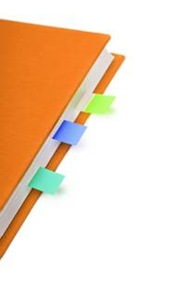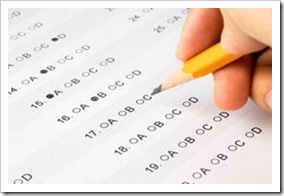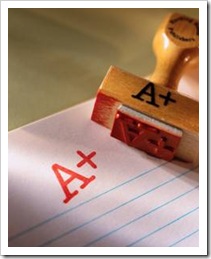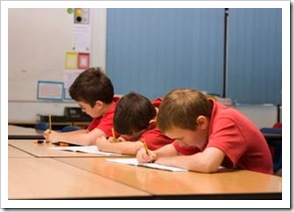
Who is not afraid of tests? Who does not hate having to study for tests?
When I was a school kid (and not a very good one, mind you), I hated tests. I used to be so scared I was sick on the day. Sometimes, this worked and I got to stay at home, but most of the times I still had to go to school and take the test. The more I was afraid of tests, the worse my grades were. You could say that the worse I thought I would do, the more I feared the test.
True!
I remember saying to myself for years, “I am going to study for this test”. But as I opened my notebooks and looked at them, I realized I did not know what it meant to study for tests. My test sheets, by the way, looked exactly like that later – puzzled.
Things you should have learned at school, but never did
 For a while, I thought it was just me – I did not know what others knew. I thought it was because I missed lots of school days (I told you I was sick, because I had too many tests) or because I was talking too much while sitting at the back of the class (I was a real trouble maker). For some time, I thought it was because I was just stupid.
For a while, I thought it was just me – I did not know what others knew. I thought it was because I missed lots of school days (I told you I was sick, because I had too many tests) or because I was talking too much while sitting at the back of the class (I was a real trouble maker). For some time, I thought it was because I was just stupid.
It was only when I found out the magic formula for studying and getting ready for tests that I knew learning and passing tests depend on your family circumstances. If you have a parent or a family member who can teach you how to do it, you are lucky. If not, tough luck!
Only later, when I was doing studying for my education degree, I found out that how to study efficiently for a test was not part of the curriculum. At the Special Education department, we complained about it a lot (special educators are, as the name suggests, special). The answer was “There is not time to teach each student his or her best way to study for tests”.
Well, I say there is no time not to teach it.
How to study for tests – 11 tips to teach your kids
Tests are fun
Teach your kids from an early age, preferably from the first year of schooling, that tests are opportunities for them to show how much they know. If you say it many times, they will eventually think about tests this way. Also, remind them that tests are their way to move from one level to the next, like in a computer game.
Teach your kids to welcome tests, because they help them grow.
Good sleep
Remind your kids that they need focus during a test. Sleep deprivation can easily change the score on the test and be the difference between succeeding and failing, even if you know the subject. Talk to your kids about the importance of getting enough sleep before every test or any important event. Sleep is like food – it is what the body needs to be able to function best.
Highlight the important stuff
 When the teachers talk in class, your kids can pay attention to what the teachers think is important and highlight those things in their notes. Teachers usually know what they are going to test you about, so kids should make an effort to highlight the important stuff.
When the teachers talk in class, your kids can pay attention to what the teachers think is important and highlight those things in their notes. Teachers usually know what they are going to test you about, so kids should make an effort to highlight the important stuff.
What the teacher considers important they will repeat more than once, give plenty of examples of and put it on the revision sheet. Remember, if your kids focus on the important things, they will have to study less and the tests will be easier.
Do your homework
Homework is just like a test. Homework is a way for teachers to tell the kids what they are going to test. When preparing for a test, teachers go over all the homework they have given and pick representative questions to put on the test. If kids do their homework every time it is given, all they need to do is go over your homework to find the questions for the test.
It is much harder to study for tests without your homework. Usually, teachers build the homework gradually to make it easier for kids to get to the level of the test. In that case, homework assignments are kids’ way of testing themselves and bringing their level up slowly. Kids should do a bit every time they are given homework. Jumping all the levels up a day before the test has never worked for anyone.
Find someone to study with
 When studying together, kids get a chance to explain things to someone else, which is the best way to learn. Teaching is the best way to learn. Ask any teacher.
When studying together, kids get a chance to explain things to someone else, which is the best way to learn. Teaching is the best way to learn. Ask any teacher.
When working together with a friend, kids can help their friend and the friends can help them. The discussion is very good for understanding. Everyone brings new understanding and new techniques for studying and kids can discover new and different ways they never knew existed.
Warning: sometimes, when working together, kids start taking and chatting and laughing and giggling and in later years, they start gossiping and that may distract them from the original purpose of getting together, which is studying for tests. They should pick friends who can stay focused and say to them bravely, “We can study together only if you are committed to studying”.
I used to study with my friends for 1 or 2 hours and have fun later. This worked well, as long as someone helped others concentrate and reminded them of the rules – me.
Manage your time wisely
Most kids remember the test the day before and get into lots of pressure going over the subject in one day, after school, while being tired and not very effective. Pressure is almost a guarantee for getting no value out of any studying.
Teach your kids to start studying a week before. This will help move the learning from short-term to long-term memory, which is where it should be. Then, they will do the test easily. One day is not enough time to get knowledge into long-term memory, but one week is much better.
Show them that instead of sitting 3 hours the day before the test, they can sit 10 minutes every day for 7 days – almost a third of the time it would take them to study the day before – and it will be more effective. Another reason this will be better is because they will have an opportunity to repeat things 7 times before the test, making their learning 7 times more effective.
Revision cards
Many times, there is a lot to remember and kids feel overwhelmed. Putting the main ideas on cue cards is a great way to help with this overload. You can use cue cards for formulas in Math, for events in History, for sequences in Science, for spelling words or for the main ideas of stories in Literature. When they finish putting everything on the cards, most kids feel relieved, because they only need to study 20-30 cue cards. Compared to “a whole notebook” or to “a lot of information”, it is nothing.
 Kids can write the questions on one side of the cards and the answers on the other side. Revision cards are wonderful in helping them remember. They should go over the cards every day for a week before the test and notice how much they can remember.
Kids can write the questions on one side of the cards and the answers on the other side. Revision cards are wonderful in helping them remember. They should go over the cards every day for a week before the test and notice how much they can remember.
Another advantage of the cards is that you, the parent, can help by reading the questions and looking at the back of the cards for the answers (you may not know the answers and this only gets harder as your kids grow).
If your kids need to study more than one topic, they can create cards in different colors. For example, for addition, they can use blue cards and green cards for subtraction. Colors will help their brain “file” things together by category.
Test trees
If you know what mind maps are and your kids can easily remember pictures, help them make graphs and maps of what they need to study. Make them look like a tree, where the main topic is on the trunk and the rest is on the brunches or leaves. This way, your kids can remember 3-4 trees instead of many cards.
You can combine this with the color technique as well by drawing each tree in a different color.
Talk to yourself
If your kids remember things they hear, suggest that they read the cue cards out loud, as well as the summary of their subject material.
Auditory kids can make a song out of the information or listen to tapes that will remind them what they have to study. They can tape themselves (or you) saying the answers and listen to the recording on their MP3 player. If they hear it for 10 minutes every day for a week, your kids will be able to recall the answers without even blinking.
Go over the test before starting
Teach your kids to go over their test before they start to write anything.
Many times, going over the test before you start can give you an indication of how to manage your effort and allow you to decide ahead what you are going to do first or last. Many times, teachers write what each section is worth and this can help you decide to spend more time on the sections that will give you the most.
By going over the test briefly, you can find your strong sections and the ones you are less comfortable with. If your kids find tests overwhelming, they should start with the easy parts and this will give them confidence in their knowledge and understanding.
Check before submitting
 Explain to your kids that doing things perfectly on the first go is very rare and does not have to be their aim.
Explain to your kids that doing things perfectly on the first go is very rare and does not have to be their aim.
Teachers tell kids in class to check before submitting assignments and talk to them about first draft and second draft leading up to the final version. Tests are the same.
Teach your kids to finish the test, close their eyes for one minute, breathe deeply, open their eyes and go over their test one more time.
It is not easy to check yourself, because the brain skips sections it thinks it is familiar with, but the one minute break can do the trick. Alternatively, they can start checking from the end.
Tell your kids that if they find more than two mistakes, they should close their eyes again and this time, take two minutes off and count their breathing.
Your kids should never submit tests early. If they are done and there is plenty of time, they should take another break and check again. No one gets extra points for finishing early.
Final note:
Do not fight tests. Life is full of them, even if they do not appear as written documents. Still, most of the time, they are much more complicated that the ones you had at school. If you teach your kids how to pass their tests at school, they will be more likely to pass in the school of life.
Happy parenting,
Ronit
This post is part of the series How to Study For Tests:
- How to Study For Tests: The Basics
- How to Study for Tests: Teachers’ Clues











